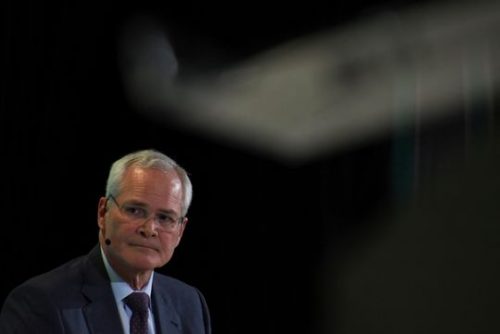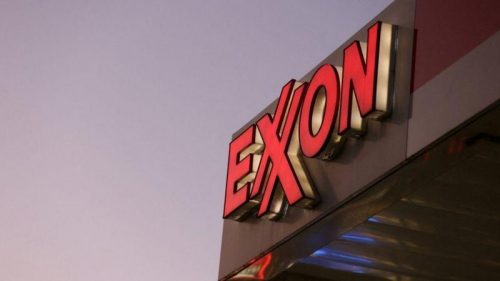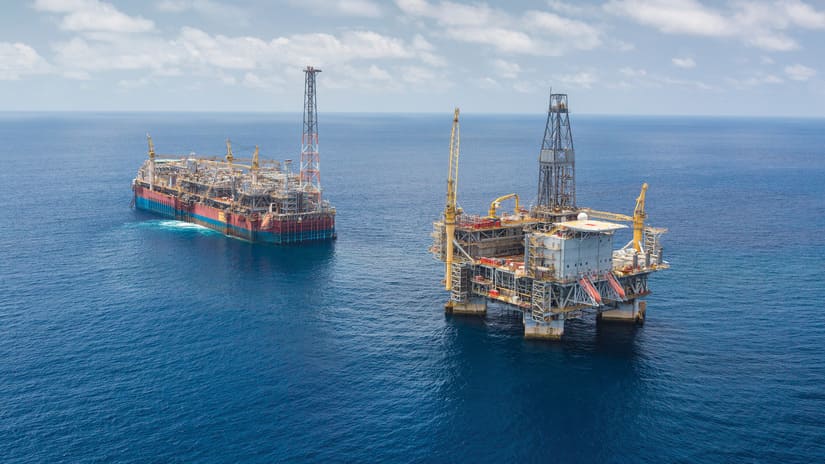The American company Exxon Mobil failed to find oil in Brazil, after nearly 6 years of search and exploration operations.
And the giant American oil and gas company stopped the current drilling in the offshore region, which it began to seize with partners for $ 4 billion in 2017, after failing for the third time to find commercially extractable quantities of oil.
ExxonMobil has bet billions of dollars on offshore exploration in Brazil, and the country was one of three geographic regions the company has set out in its strategy for production growth over the coming years.
The news of stopping oil exploration in Brazil comes less than a day after ExxonMobil indicated that its operating profits for the first quarter of 2023 are expected to decline by about 25% from the record levels of last year, due to the decline in oil and gas prices.
Transportation of drilling workers
ExxonMobil has moved geologists and engineers who worked on the years-long drilling campaign from its offices in Rio de Janeiro to other countries, including Guyana, Angola and Canada, the Wall Street Journal reports.
Analysts said that the US oil giant has not issued bids for drilling contractors to carry out exploration work there this year, since the end of the last active drilling contract in April 2022, and it skipped the last external auction in Brazil in December.
ExxonMobil’s moves to spin off its recent drilling campaign in Brazil represent a major setback for a country it had promoted for years as a major source of growth.
In December 2022, Exxon CEO Darren Woods cited Brazil as one of its key “growth opportunities,” part of its portfolio of low-cost sourcing developments, along with Guyana, the Permian Basin in West Texas, and New Mexico. , and exports of liquid materials and natural gas.
future plans
Despite stopping the exploration campaign, ExxonMobil did not rule out future projects in Brazil, as company spokeswoman Michele Gray said that her company is still operating in the country and continues to pursue exploration activities.
She added, “Our initial exploration drilling program in Brazil has now been completed…and we continue to work with our project partners to analyze the data obtained from the comprehensive drilling program to assess the potential for future exploration activities in those blocks.”
The US company is considering drilling in the equatorial fringe off northern Brazil, away from existing leases in the south, people familiar with the matter said.
Analysts said that the Brazilian state oil company, Petrobras, is currently awaiting permission to explore in the area, which is considered an environmentally sensitive area, from the Brazilian environmental regulator, which has blocked drilling permits in the area for years.
ExxonMobil returned to Brazil 6 years ago, with high hopes that it would replicate the successes of other drillers in Brazilian offshore geological formations more than a decade ago.

oil in Brazil
Brazil has become one of a dwindling number of places around the world where oil majors are still spending money looking for oil, despite the difficulties some companies have had recently in finding oil there.
Brazil is currently the hottest market for offshore drilling rigs, led by state-owned Petrobras, according to data seen by the specialist energy platform.
ExxonMobil said it plans to spend most of its $25 billion annual capital budget in the Americas this year, including in Brazil, with a focus on the Western Hemisphere that reflects the company’s priority to increase shareholder returns and reduce costly frontier drilling projects.
The American company owns a minority stake in a separate offshore project in Brazil led by Norway’s Equinor in the Buckleo field, which is moving forward, as the companies start the first phase of the project in 2021.
The two companies, the American and the Norwegian, expect to produce the first oil from the Buckley field in 2024, and it may reach approximately 220,000 barrels per day in 2025.
Exxon Mobil exit
Last year, ExxonMobil sold or proposed to sell assets in Chad, Cameroon, Egypt, Iraq and Nigeria, along with some older assets in the United States and Canada, making it the largest number of such sales since 2018.
Since 2018, the company has been planning to sell assets worth at least $15 billion, while reducing its global presence and focusing on its most valuable assets.
In 2021, ExxonMobil drilled two wells in Brazil’s Campos and Santos basins, and last year, it drilled a third well in the Sergipe-Alagoas basin, and none of the three wells off Brazil had enough oil to be commercially viable.

The company is under pressure to succeed in Brazil, where it has gone from being a small player to participating in 28 offshore lease blocks, as a major operator in 17 of them.
ExxonMobil’s strategy in Brazil so far is “disappointing,” despite spending $4 billion on drilling rights over the past five years.
The failure contrasts with its success in areas near Brazil, where it has found contracts for oil in recent years. The company has 6 drilling rigs operating in Guyana, and is expected to secure more contracts there in the coming months.
ExxonMobil also deployed a drilling vessel in Angola last year. The rig is operating under a two-year contract, marking the US company’s first exploration effort in the West African country since 2018.
“There was a lot of hope for what Brazil could have been,” said Rystad Energy analyst Schreiner Park.
Deepwater wells off Brazil cost between $100 million and $150 million per well, according to energy consultant Wood Mackenzie.
Other Western oil companies have also struggled to make commercial discoveries in recent years, said Wood Mackenzie analyst Marcelo de Assis, but Exxon’s peers – Shell, Britain’s BP and France’s Total Energy – continue to drill in Brazil.
He added, “Exxon Mobil, like most of the oil companies that entered Brazil, has a very positive outlook, and most companies have poor results in exploration.”
related topics..
Also read..

Leave a Reply